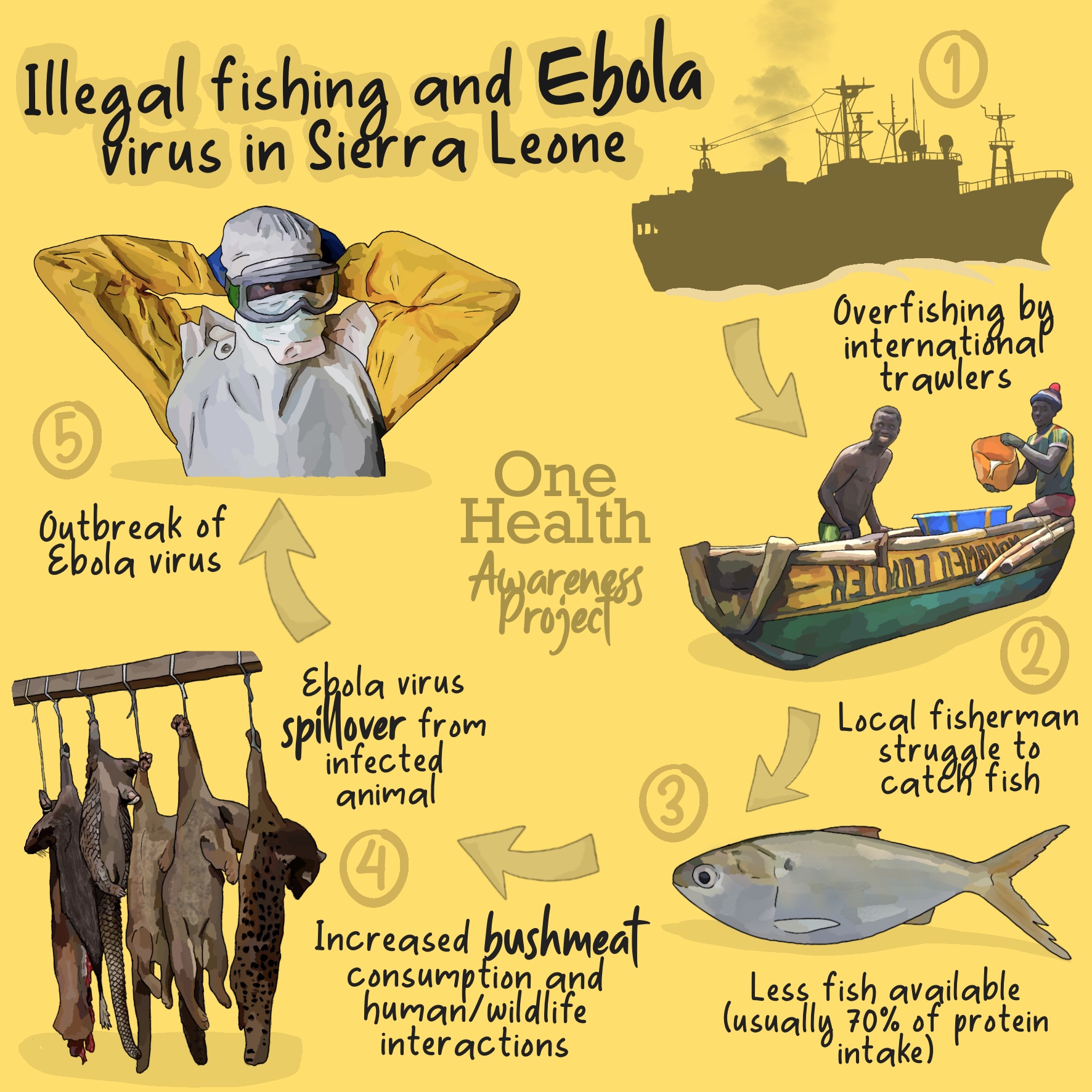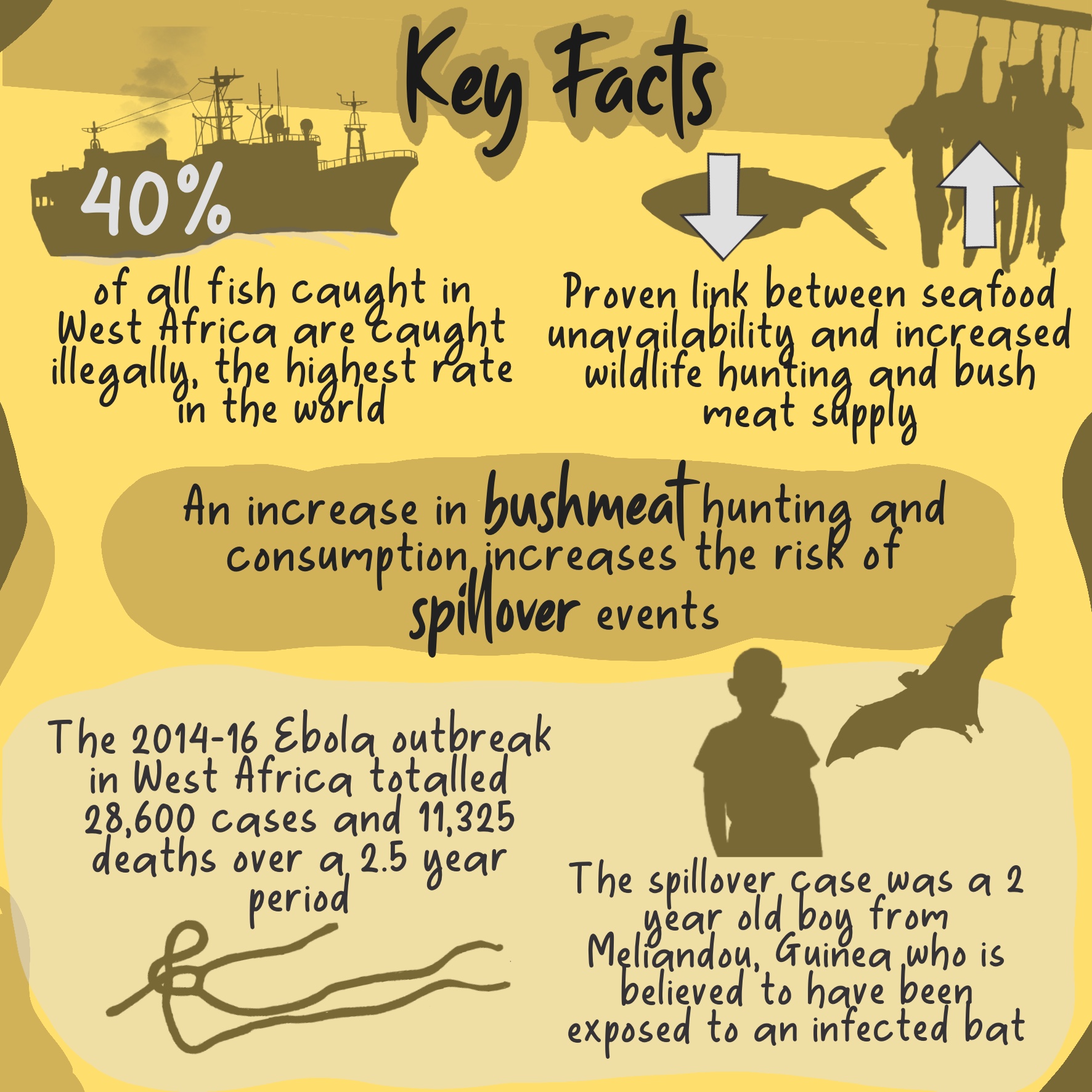At first, the connection between overfishing in the ocean off the coast of Western Africa, one of the worlds most productive marine ecosystems, and cases of Ebola might seem trivial. However, there is increasing evidence that there is a direct relationship between reduced fish availability and an increase in consumption of bushmeat. This increased bushmeat consumption is a significant risk factor in spillover of Ebola virus from wild animals to humans. Globally, there are growing concerns about the health of fish stocks and how depletion of fish in the ocean will impact food security, particularly in vulnerable countries. Western African countries heavily rely on fish as a principal source of animal protein (70% of dietary animal protein in Sierra Leone). Illegal fishing in this region makes up 40% of all fish caught, which is the highest rate in the world, representing a major threat to fisheries sustainability, domestic food security and livelihoods in West Africa.


Decreasing fish stocks have led to increasing demand for bushmeat as a cheap alternative source of animal protein, with 60% of the population of Seirra Leone living in, or close to severe poverty. There is an established relationship between seafood unavailability and increased wildlife hunters and bushmeat supply in local markets. An increase in bushmeat hunting and consumption, increases the crossover at the human/wildlife interface, and increases the risk of a spillover event of zoonotic disease, such as Ebola virus, from wild animals to humans. (Doumbouya et al. 2017; Seto et al. 2017; Khan & Sesay 2015; Saéz et al. 2014)
